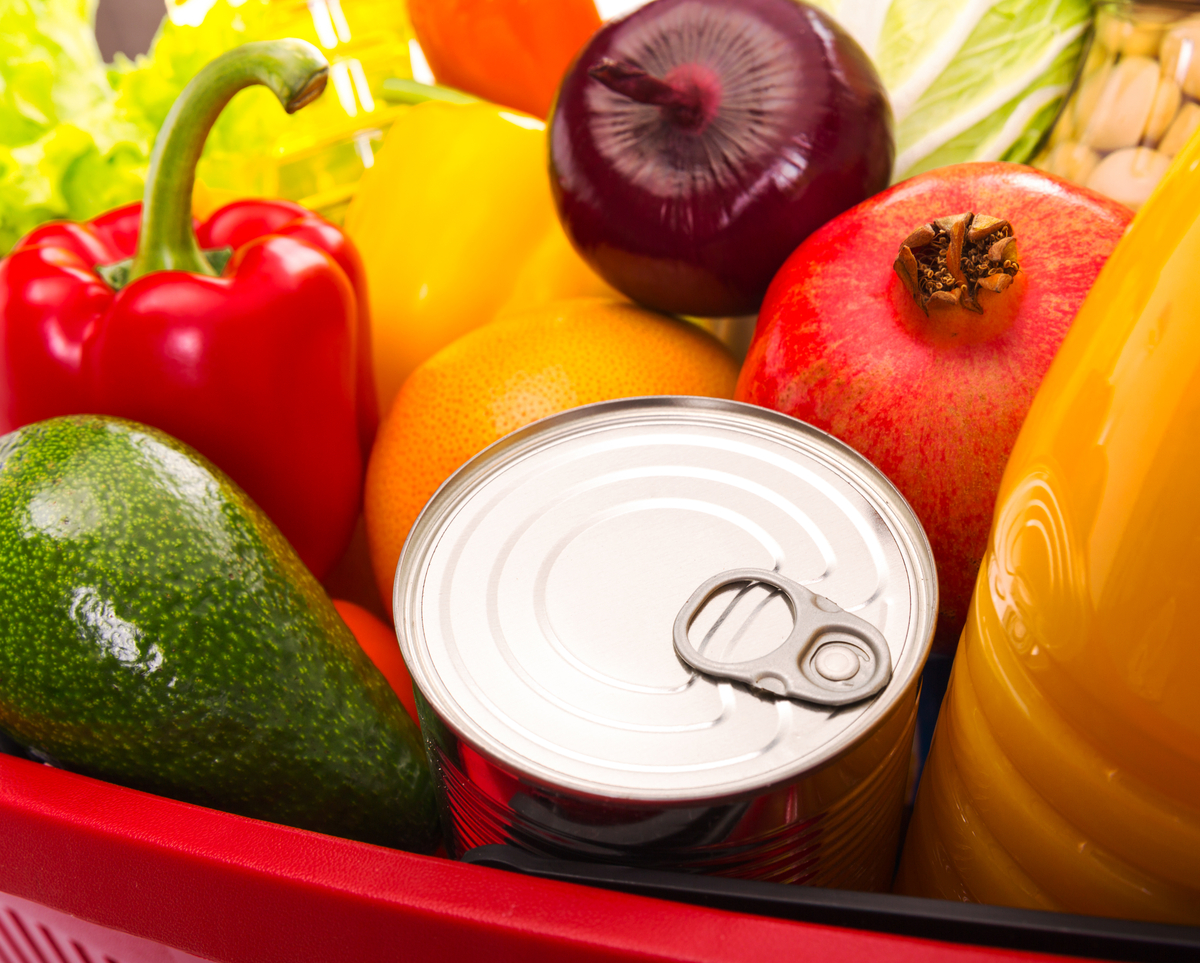By Lisa Kaschmitter, Arizona State University Nutrition Student
When it comes to fruits and vegetables, eating them in almost any form is a great thing and Arizonans, like most other Americans, are not filling their plates with nearly enough of either! Although eating fresh produce is usually thought of as the healthiest option, this creates a barrier for many people who are faced with time and budget constraints, as well as, not wanting to worry about fresh foods going bad and being wasted. People often turn to frozen and canned fruits and vegetables, as they can be a less expensive, longer lasting option. If frozen or canned produce is more reasonable for your family, let’s talk about their benefits, because there are many.

Fresh and Fast
All fruits and vegetables begin to lose some nutrients within days of being picked. The vitamins most likely to be lost first are vitamins A and C, along with riboflavin and thiamin, within the first few weeks they can lose half their value.1 Fortunately, due to exact specifications on refrigerated trucks and quick delivery times, the loss of nutrients can be reduced. For example, in Yuma, where most of our leafy greens come from in winter and ship throughout the United States, fresh lettuce can be on produce shelves in the Midwest and east coast in days.
Cooking this produce also results in lost nutrients. It’s best for nutrient retention to cook produce as quickly as possible at the lowest heat level possible.2 Water-soluble nutrients, (such as vitamin B and C), will be lost when produce is cooked through a liquid heat method such as boiling or blanching.2 Steaming or microwaving helps to retain some of these nutrients since it requires a short cooking time and little to no water.2
Get ‘em Frozen
A wide variety of fruits and vegetables are available frozen. Broccoli, cauliflower, carrots, raspberries, strawberries, pineapple, you name it; you can probably find it in the frozen food aisle. Frozen foods tend to retain nutrients better than canned because they are not degraded by time or heat. Produce is usually frozen very soon after it is picked, which allows for nutrient retention. Frozen foods also tend to have lower-sodium content than canned foods.
Canned Works
Some nutrients are lost during the canning process, however, the range of nutrient loss changes depending on the type of produce that is being canned. In a data study conducted at U.C. Davis, researchers found that beets held their nutrients the best during the industrial canning process, only losing 8% of their ascorbic acid (vitamin C).3 Some produce such as carrots lost as much as 90% of their nutrients during the canning process.3
Canned foods also are typically high in sodium content because sodium is often added during canning. There are many canned foods that are labeled as low-sodium or no-sodium so that those who need to, or want to, can avoid this excess sodium being added to their diet.2 For all canned produce, draining and washing the produce before consuming it can drastically reduce the amount of sodium you consume.2
Ultimately adding more fruits and vegetables to your diet will enrich your vitamin and mineral levels. The U.S. Department of Agriculture recommend consuming fresh, frozen, canned, and dried produce to reach their recommended daily intake of 2.5 cups of fruit and 2 to 3.5 cups of vegetables per day.4
If you are not reaching this intake, you are not alone. The 2015 Dietary Guidelines states that nearly 80% of Americans are not getting enough fruits or vegetables in their diets consistently.4 I invite you all to join me in making a conscious choice to Fill Your Plate, and plan my meals around these guidelines by incorporating fresh, frozen, and canned fruits and vegetables each day!
In Fact, Arizona Farm Bureau’s Fill Your Plate is one place to inspire you to eat more fruits and vegetables.
References:
- Nutritional value of canned versus fresh: Is there a substantial difference in vitamin and mineral values of canned foods, compared to fresh? Pick Your Own Website. http://www.pickyourown.org/nutritionalvalueoffresfhversuscannedfoods.php Updated 2015. Accessed November 20, 2015.
- Nutritional differences between canned, frozen, and fresh veggies? Go Ask Alice/Columbia University Web site. http://goaskalice.columbia.edu/answered-questions/nutritional-differences-between-canned-frozen-and-fresh-veggies Published January 29, 1999. Updated June 6, 2014. Accessed November 20, 2015.
- Rickman JC, Barrett DM, Bruhn, CM. Nutritional comparison of fresh, frozen, and canned fruits and vegetables. Part 1. Vitamin C and B and phenolic compounds. J Sci Food Agric. 2007; 87:930-944. doi: 10.1002/jsfa.2825
- USDA. Scientific Report of the 2015 Dietary Guidelines Advisory Committee. http://health.gov/dietaryguidelines/2015-scientific-report/pdfs/scientific-report-of-the-2015-dietary-guidelines-advisory-committee.pdf Published February 2015. Accessed November 20, 2015.

